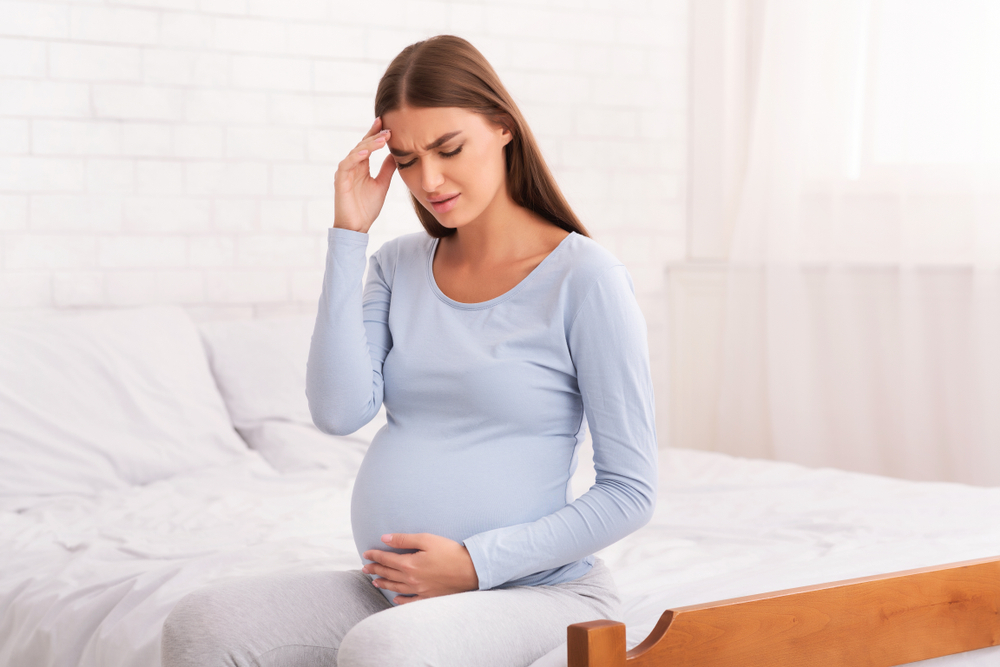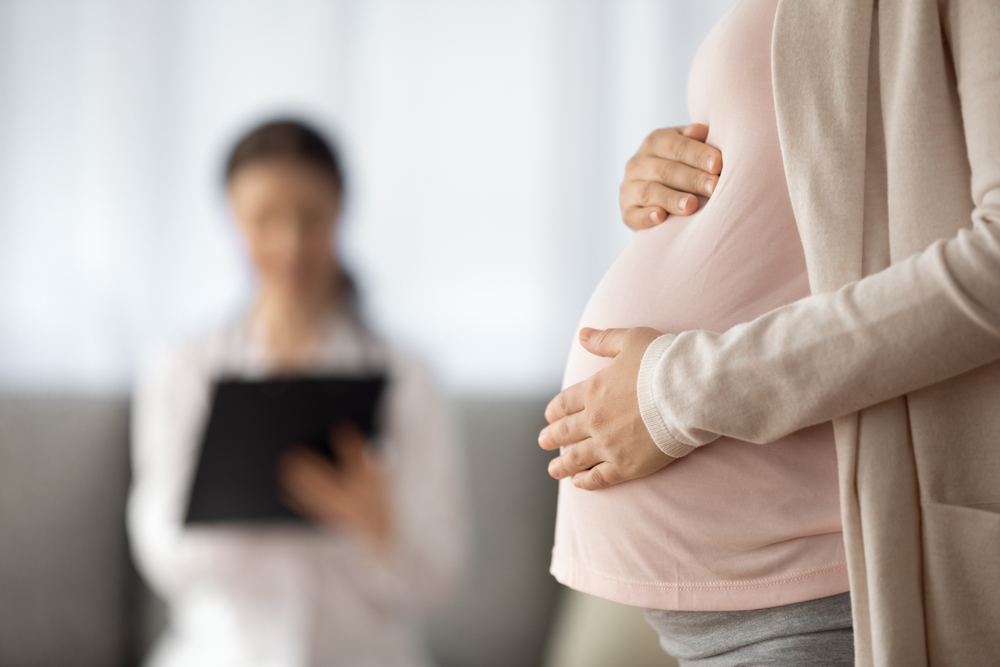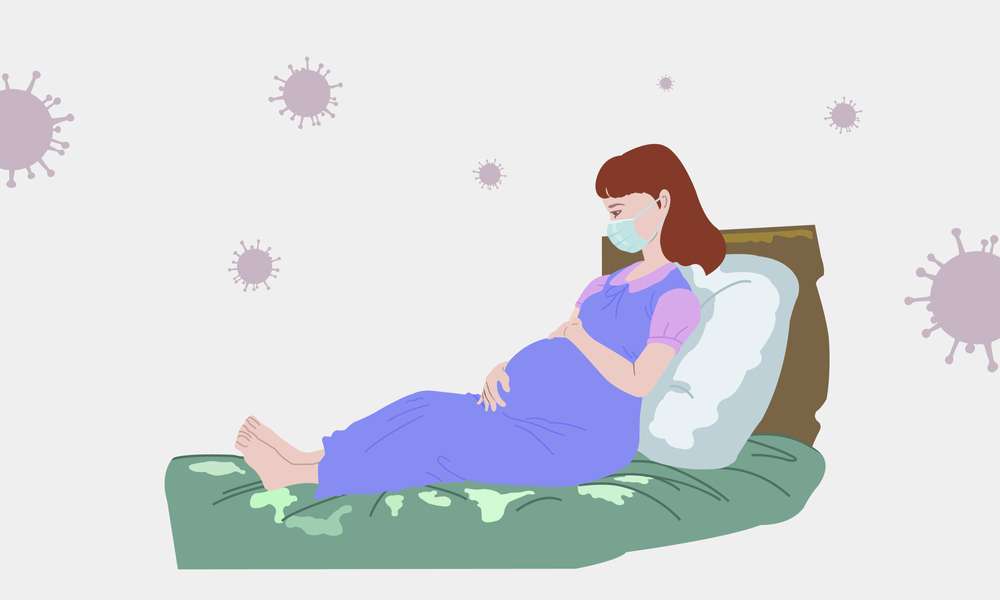Dizziness During pregnancy
Although becoming pregnant is a wonderful and life-changing experience, there are often physical changes that come with it that can occasionally cause discomfort. For a safe and healthy pregnancy, it is essential to understand the causes, management strategies, and when to seek medical attention for dizziness during pregnancy, a symptom that many expectant mothers experience on a fairly regular basis.

Understanding Dizziness During Pregnancy
Dizziness can strike at any point during pregnancy and is typified by a feeling of lightheadedness, faintness, or a brief loss of balance. Numerous factors can be attributed to it, such as:
- Hormonal Changes: Dizziness during pregnancy may be caused by fluctuations in hormone levels, specifically in blood pressure and blood sugar.
- Modifications to the Circulatory System: During pregnancy, the body experiences notable modifications to its circulatory system. Dizziness can be caused by a number of factors, including growing uterus, blood vessel expansion, and an increase in blood volume.
- Positional Changes: Getting up quickly from a seated or lying position can lower blood pressure suddenly, which can make you feel lightheaded for a while.
- Anemia: Often occurring during pregnancy, iron-deficiency anemia can lower the blood’s ability to carry oxygen, which may lead to lightheadedness.

Coping Strategies for Managing Dizziness
Dizziness during pregnancy can be unsettling, but there are a few ways to manage and lessen its effects:
- Remain Hydrated: It’s critical to keep your body adequately hydrated. It’s critical to drink lots of water throughout the day because dehydration can make vertigo worse.
- Refrain from Extended Standing: Taking pauses and avoiding extended standing can help keep blood pressure levels from falling.
- Change Positions Gradually: To avoid abrupt drops in blood pressure, make the adjustment from sitting or lying down to standing slowly.
- Eat Small, Frequent, Nutritious Meals: Eating small, frequent meals can help control blood sugar levels and avoid lightheadedness.
- Iron-Rich Diet or Supplements: If anemia is a concern, following a doctor’s recommendations and consuming foods or supplements high in iron can be helpful.
- Dress Comfortably: Steer clear of tight attire that could impede blood flow.
- Seek Rest and Lie Down: To avoid falling and possible injury, it’s imperative to sit or lie down if you’re feeling lightheaded.
What Causes dizziness during pregnancy?
Your body is preparing to take care of two bodies rather than just one during the early stages of pregnancy. There are several possible causes of dizziness during pregnancy:
- Your circulatory system is rapidly expanding, but your body isn’t producing enough blood to fill it yet.
- Additionally, progesterone can lower blood pressure by relaxing and widening your blood vessels, which increases blood flow to your baby but slows it down for you. Your brain then receives less blood, which can occasionally cause your head to spin.
- Your blood vessels may be compressed by your expanding uterus, particularly if you’re lying on your back.
- Your body is currently producing a lot of heat, so spending too much time in a hot or stuffy room can exacerbate dizziness. This is why it’s called “a bun in the oven.”
- You run the risk of experiencing a dizzy spell if your blood sugar falls or if you become dehydrated.
When to Seek Medical Attention
Even though pregnancy-related dizziness during pregnancy is typically harmless and related to the body’s adjustments, there are some circumstances in which getting medical help is essential:
- Severe Dizziness: Severe dizziness that lasts a long time, obstructs daily activities, or is accompanied by other worrisome symptoms.
- Frequent episodes of fainting or loss of consciousness should be assessed by a healthcare provider right away.
- Vaginal Bleeding: Dizziness combined with vaginal bleeding may indicate a more serious problem that needs to be seen by a doctor right away.
- Chest Pain or Palpitations: Seeking medical attention right away is necessary if you experience dizziness along with chest pain, heart palpitations, or dyspnea.
- Headache or Blurred Vision: Severe headaches, blurred vision, or other neurological symptoms combined with dizziness may be signs of a more serious illness.
When should i be worried about dizziness during pregnancy
Pregnancy-related dizziness is a common occurrence that is frequently caused by the body adjusting to internal changes. Dizziness, however, can occasionally indicate a more serious problem and call for medical intervention. Here are some situations during pregnancy when you should be concerned about dizziness:
- Severe or recurring dizziness:It is imperative that you speak with your healthcare provider if you are suffering from severe or frequent episodes of dizziness that substantially disrupt your daily activities. This is particularly important if the lightheadedness continues or gets worse over time.
- Losing consciousness or fainting:It is concerning if you frequently experience fainting spells or total loss of consciousness. A medical expert must assess these incidents right away in order to rule out any major underlying problems.
- Blood in the Vagina:Vaginal bleeding combined with dizziness may indicate a more serious problem. In situations like these, it’s critical to seek medical assistance right away.
- Palpitations or Chest Pain:It is important to seek medical attention if dizziness is accompanied by chest pain, palpitations, or difficulty breathing. These symptoms might point to a heart condition or other serious issues that require immediate medical attention.
- Dizziness or headache:Prompt attention should be given to dizziness that is accompanied by severe headaches, blurred vision, confusion, or other neurological symptoms. These might be signs of diseases like preeclampsia that require emergency medical attention.
- Constant Lightheadedness with No Alleviation:It’s crucial to speak with a healthcare provider if you’ve tried a variety of self-care strategies to treat dizziness, such as drinking plenty of water, eating healthily, and taking breaks to rest, but the condition still exists or gets worse.
- A New Dizziness Onset in a Later Pregnancy:Especially if it was not a prior symptom, dizziness that appears suddenly in the later stages of pregnancy should be taken seriously and discussed with a healthcare provider.
- Exacerbating Symptoms Gradually:It’s time to get medical help if your dizziness during pregnancy is getting worse over time. It is important to pay attention to any symptoms that are getting worse or occurring more frequently.

What can I do to stop dizziness during pregnancy?
- Avoid spending a lot of time standing. Keep your feet moving if you must stand in order to improve circulation.
- Rising gradually from a seated or reclined position is crucial, particularly when stepping out of the bathtub.
- Eat frequently. Avoid going long periods without eating; it’s preferable to have snacks all day.
- Don’t take hot showers or baths.
- After you enter the middle of your second trimester, avoid lying on your back.
- Don loose, comfy clothing to prevent limiting your range of motion.
Conclusion
Due to the body’s amazing changes, dizziness during pregnancy is a common and frequently treatable symptom of pregnancy. Making lifestyle changes, drinking plenty of water, and eating a balanced diet will help to greatly lower its incidence. But it’s important to know when dizziness during pregnancy could indicate a more serious problem.Although dizziness is a common symptom of pregnancy for many women, every pregnancy is different, so it’s important to trust your gut and see a doctor if you have any concerns about the severity or frequency of any symptom. Speaking with a healthcare professional can ease anxiety and guarantee appropriate direction and management, as well as the safety and wellbeing of the expectant mother and her developing child.


